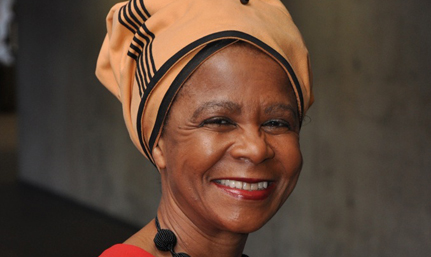Latest News Archive
Please select Category, Year, and then Month to display items
![]()
“A mind that is learning is a free mind and freedom demands the responsibility of learning” – J. Krishnamurti. What is the essence of education in our modern society amid the emerging, unprecedented, present-day circumstances? On 27 November 2020, third-year students from the University of the Free State (UFS) not only sought to inspire the youth in Kestell and bring them messages of hope, but also actively engaged them on how to be equipped with the necessary skills that would help them surf through the rapidly advancing world economics and the changing labour-market demands.
The collaboration with other expert stakeholders created a platform for significant conversation about alternative skills training that is designed to successfully address the current economic needs, thus enabling education to thrive and serve the intended purpose, which would ultimately manifest in effective transformation within communities. The UFS Qwaqwa Campus Community Engagement office coordinated the teamwork, comprising the Free State Department of Social Development, Maluti TVET College, the Free State School of Nursing, AGAPE Foundation for Community Development, Japie Lepele Foundation, the Riverside Finishing School, and Advance Academy.
TVET education allows students to progress in fields that suit them best and at the same time acquire skills needed for the future world of work. Information Technology (IT) students and staff members shared encouraging testimonies of their education experience and employment. The academy presented their finishing school programme to encourage learners to complete their secondary education even after they have suffered some interruptions. Although there are currently many challenges facing education in our semi-rural areas – such as Kestell – that result in lack of access to education and insufficient resources, civil partnerships like these are supporting and enabling communities in their quest to find their own solutions.
Inaugural lecture challenges leaders in higher education
2012-10-30
|

|
Dr Mamphela Ramphele
Photo: Stephen Collett
29 October 2012 |
Lecture (Pdf format)
According to international statistics, South Africa’s school performance is rated 140th out of 144 countries. South Africa is also ranked 143rd out of 144 countries when it comes to the quality of mathematics and science. About 600 000 South African graduates are unemployed and about 500 000 learners are failed by our current education system.
Dr Mamphela Ramphele brought these shocking statistics to the light at the inaugural lecture of the Annual Prestige Lecture at the Faculty of Education on Thursday 25 October 2012 at the University of the Free State (UFS).
This lecture will henceforth be known as the Mamphela Ramphele Prestige Lecture.
Dr Ramphelefocused her lecture on ‘Educating the 21st century citizen’.
“One of the defining characteristics of the 21st century is the vast number of choices that confront us every day at a personal, professional and political level.”
She asked if 21st century South Africans are equipped with the skills to make the choices that confront them daily.
“The failure to transform our apartheid education into one characterized by equity and excellence, is producing graduates who lack self-confidence.”
Dr Ramphele said that in South Africa about 1/6th of government expenditure goes to education, but the outcomes remain shocking.
For Dr Ramphele the answer lies in creating platforms for open conversation about South Africa’s painful past and the agenda for radical socio-economic restructuring should include the fundamental transformation of education.
She praised the UFS, under its current inspirational leadership, for its role as change agents through the education.
Prof. Rita Niemann, senior professor at the Faculty said the Annual Mamphela Ramphele lecture is to further expand and celebrate education in South Africa.
“Dr Ramphela has given us so much food for thought by challenging leaders in higher education to speak out about the questionable state of education in South Africa and to become engaged in the ‘revolution of the spirit’ in order to deliver citizens who own and shape the country.”